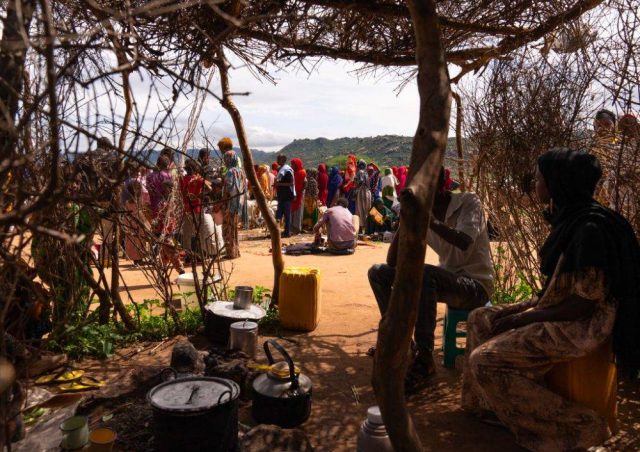

Refugees flee their countries of origin for many reasons and they cross into countries they think are relatively safer. The moment refugees exit their countries, they become stateless and devoid of citizenship and hence their status changes from legitimate citizens into asylum seekers, migrants, refugees and the stateless. In most cases, when refugees leave their countries, they do so unprepared and haunted and they are confused when they arrive in unfamiliar countries and societies they have never been to. It is because of this that host countries have the moral responsibility to receive, settle and care for these most endangered and unprotected social groups.
To address the problems associated with refugee flight, receiving countries adopt two main settlement policies: encampment and self-settlement or local integration.
Host countries that espouse encampment settlement policy concentrate refugees in overcrowded and mostly under-serviced areas isolating them from host communities and depriving them of the rights of movement, independence, access to socioeconomic services and meaningful livelihoods. Depriving refugees the right to work, education and access to socioe-conomic services is dehumanising.
Other countries embrace self-settlement or local integration policy which is more humane and progressive. Refugees have the right to free movement, settle anywhere, have access to socioe-conomic rights, earn a livelihood and socially integrate with the local community.
Many countries in Africa adopt an encampment refugee settlement policy, which also makes them overly dependent on state and non-state humanitarian actors for their everyday livelihoods and causes refugees to experience low self-esteem and high levels of stress and depression. At times, many refugees escape such camps and clandestinely settle and make a living in urban areas because they see no future in the camp environment. African countries that adopt strict encampment policies include Tanzania, Zambia, Malawi and Kenya and those that allow refugees to freely self-settle and locally integrate include South Africa, Uganda and Ethiopia.
In January 2019, Ethiopia passed a new law that permits refugees to work and earn a living anywhere in the country. They can also study at any learning institution, have access to financial services and register births and marriages.
Such provisions are not unique to Ethiopia; other countries such as South Africa and Uganda also provide such rights to refugees.
But what makes the Ethiopian case unique in Africa is that besides its progressive refugee reception and settlement policies, public xenophobic attitudes and violence are almost nonexistent. I have talked to so many Ethiopians about refugees and I have never encountered a single Ethiopian with anti-refugee sentiment.
As numerous research studies have found, how public figures frame refugee issues can have a huge influence on public attitudes of citizens towards refugees. Ethiopian public and political figures do not blame refugees for problems in their country, a habit common among many nations in the world. This speaks to the wisdom and moral responsibility of the leadership in the country and the culture and tradition of hospitality, tolerance, co-existence and spirituality of the Ethiopian society.
Ethiopia’s progressive refugee settlement policies combined with political and societal tolerance and a spirit of co-existence with refugees should be an example for other African countries. Despite national resource constraints and shortages, refugees in Ethiopia can still live peacefully and earn a living alongside host communities.
Relegating African refugees to isolated camps goes against the spirit of pan-Africanism and Africa’s cultural tradition of coexistence and tolerance. Virulent narratives against vulnerable refugees by public figures in African countries such as South Africa fuel public xenophobic attitudes and intolerance. Having progressive refugee policies is not enough; instead they should be harmonised with positive and tolerant narratives about fellow African refugees.
Dr Amanuel Isak Tewolde is a postdoctoral research fellow at the Centre for Social Development in Africa at the University of Johannesburg.
The post Lessons from Ethiopia’s progressive refugee policy appeared first on The Mail & Guardian.
Ethiopia’s public attitudes should be blueprints for other African countries
The post Lessons from Ethiopia’s progressive refugee policy appeared first on The Mail & Guardian.





